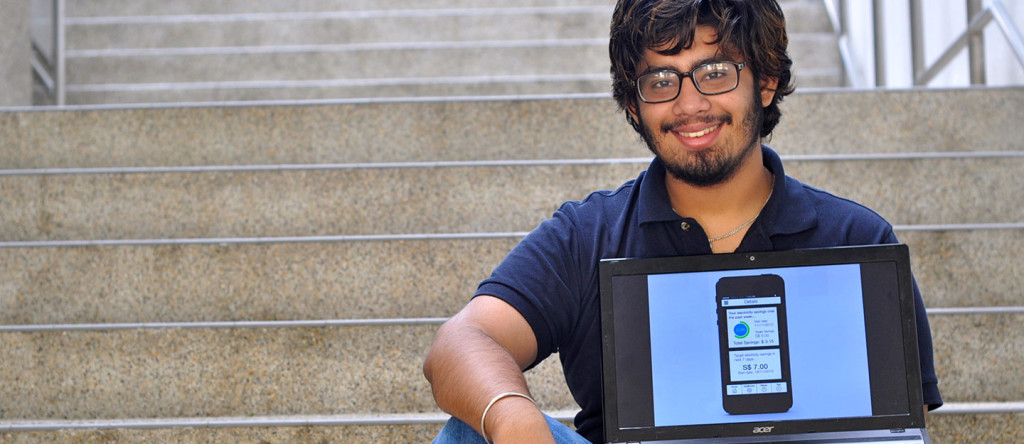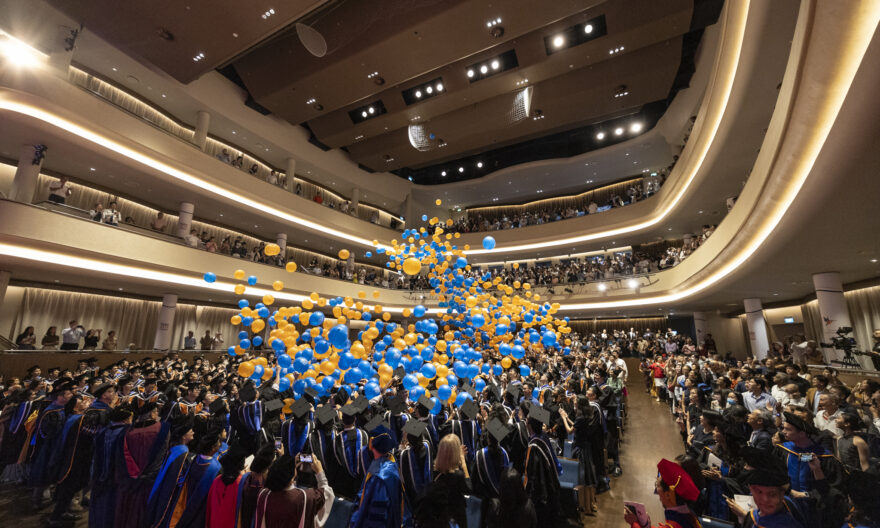Programming a Better World

Parag Bhatnagar, a member of the inaugural class of Yale-NUS College, wants to change the world, and he thinks that technology will let him do it. A ‘technopreneur’, Bhatnagar is considering the problems the world will face in the future, and how he can harness computer technology to innovatively engineer social change in order to solve them.
Originally from India, Parag’s interest in computers started in a secondary school programming class. He saw computers as enablers, allowing you “to do so much more than what you are physically capable of doing”, and fell in love with the idea of “creating something to make life easier”. This passion in him synthesised with the desire to create something that changes the way people do things.
Parag noted that computers are calculating and consistent, and able to do repetitive things with tremendous consistency. In contrast, humans, for all their brilliance, are often “lazy and forgetful”, challenged by a “lack of internal discipline”. Hence, in Parag’s view, computers can remedy these human shortcomings by serving as “helpers” through intuitive programs, reminding and steering people to make better decisions. “By making little changes to people’s lives,” Parag said, “we can enable people to do good.”
Since joining the College, Parag has already competed in and won two ‘hackathons’ — multiday computer programming competitions—and he plans on competing in many more. At StartingUP2013, a 24-hour coding competition hosted by Nanyang Technopreneurship Centre in August 2013, Parag was part of a team to create a winning program called ‘Uatu’, which helps parents use their children’s addiction to computer gaming as a tool to improve their academic performance. Through an intuitive quizzing mechanism, the program uses game-playing as a reward for studying, and allows a parent to encourage study skills while reducing the hours that a child plays computer games. For this innovative solution to a growing problem, Parag’s team won first place in the competition and a cash prize of S$5,000.
At a second hackathon organised by UP Singapore,a ground-up innovation platform that encourages active community participation in the use of creative technology and data to improve energy efficiency, Parag’s team again took first place by developing “Wishlit”, a programme which uses social engineering to help a nation save energy. “People have trouble visualising energy consumption because you can’t picture a kilowatt hour,” Parag reasoned, “but everyone knows exactly how valuable money is. By converting the idea of energy consumption to dollar units, consumers will be able to see how much energy they are saving in terms of things that matter to them—such as tickets to Universal Studios or MRT trips—instead of nebulous concepts of electricity use.”
The programme informs users on how to save an exact amount of money by reducing energy consumption over a given period, and reminds people that turning off the lights and dialling back the air conditioning is not only an environmentally smart decision, but also an economical one. The programme caught the attention and interest of energy utility company Singapore Power at the competition, and Parag hopes to be able to further develop “Wishlit” and its functionalities.
Parag shares that the education at Yale-NUS College is inspiring him to come up with even more innovative ways of using technology to help people improve their lives. “I’m interested in graphic design and computer science, so I plan on majoring in computational science with a possible minor in fine arts”, he added. This, he believes, will provide him with new transferrable skills and perspectives to improve on future ideas in a user-friendly, intuitive, and effective way.
In the meantime, Parag will continue to compete and develop programmes to make the world a better place. “This sort of thing—coming up with ideas, watching them turn into something tangible over a couple of days—is so cool. If I can keep designing things that can help people, why not?”





